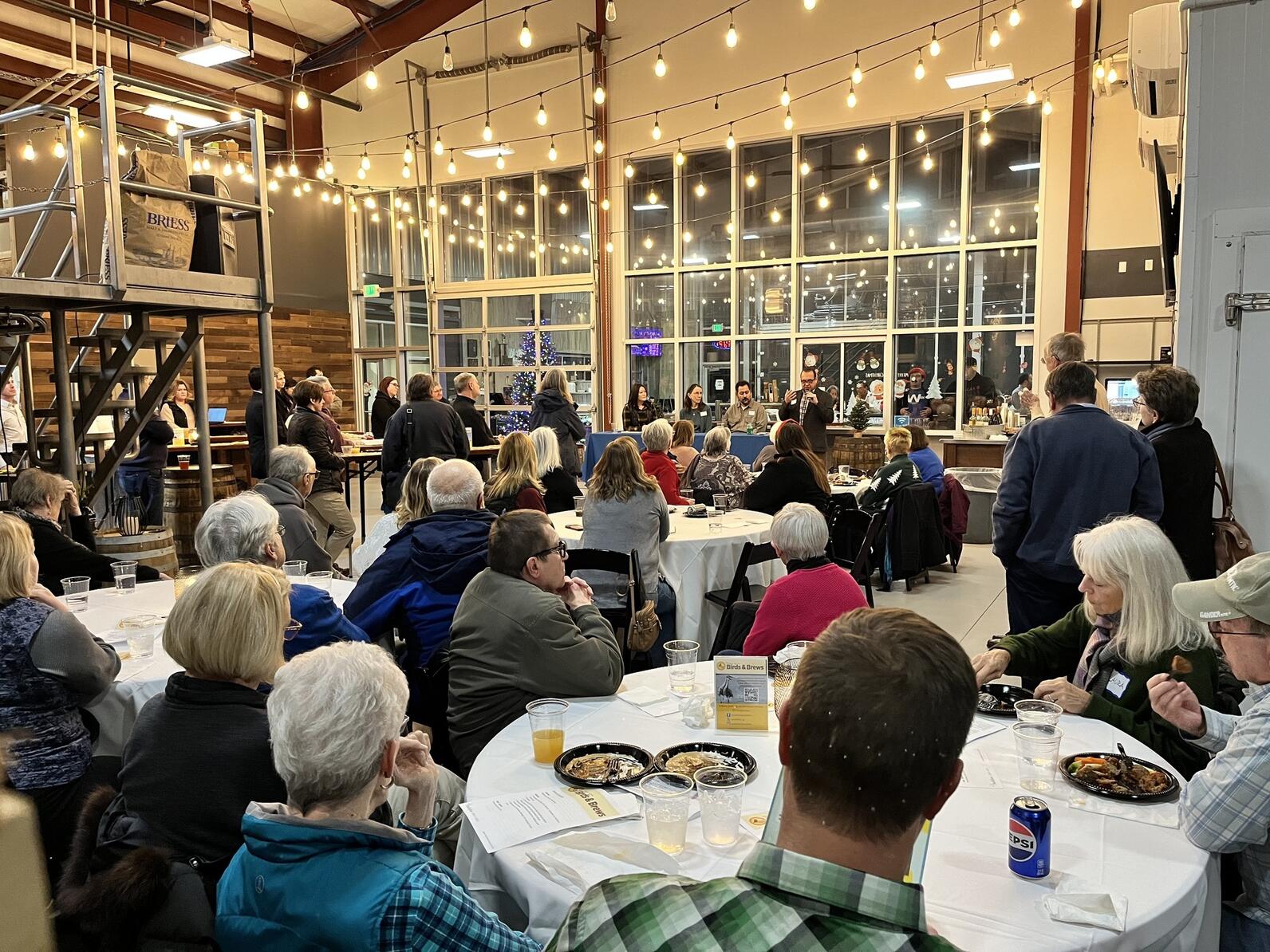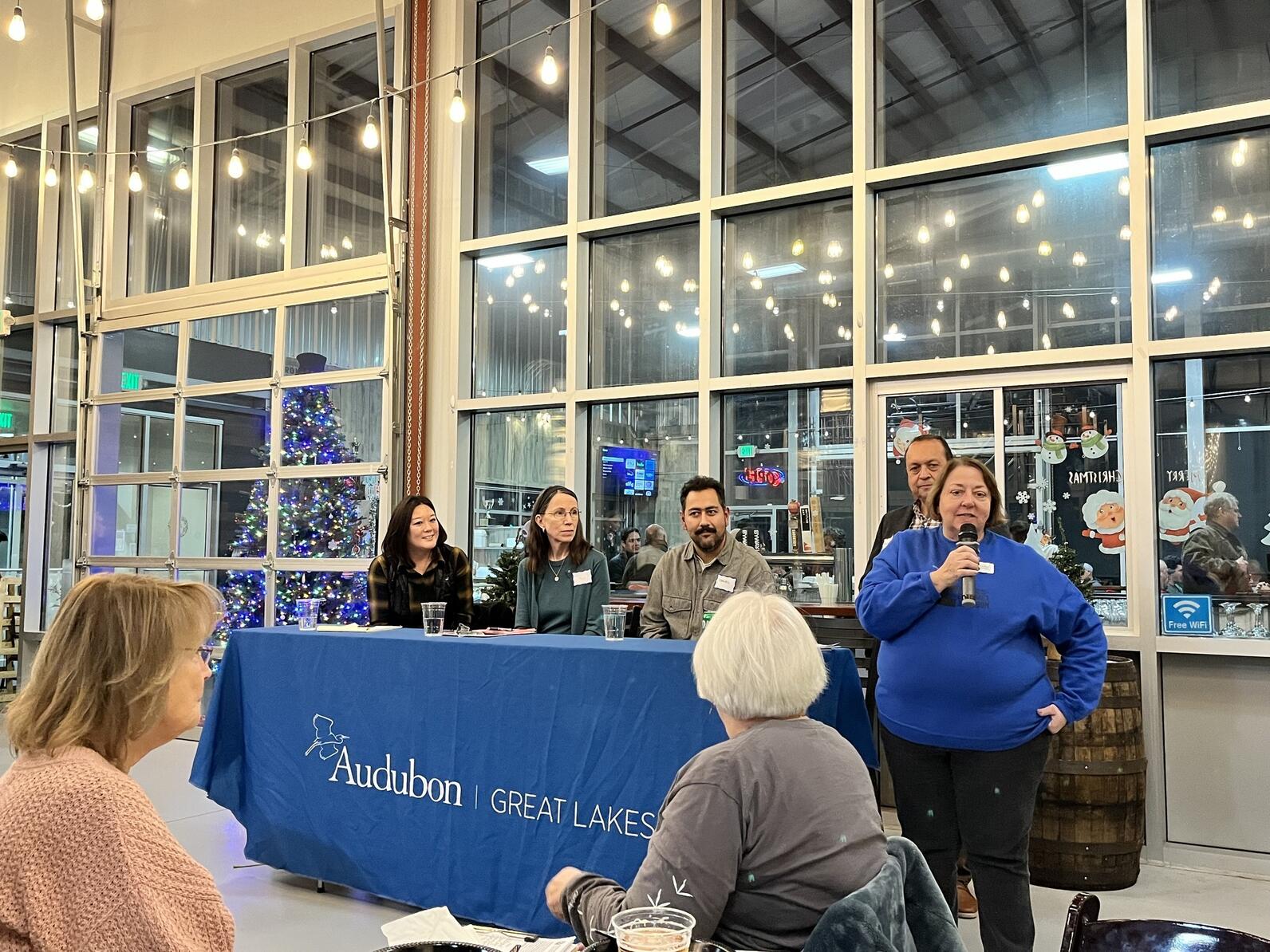INDIANA (November 30, 2023) – Indiana has already lost 85 percent of its wetlands and more could be destroyed if state legislators don’t take action. Yesterday, Northwest Indiana residents gathered for Birds and Brews, an event presented by Audubon Great Lakes and Dunes-Calumet Audubon Society, at Byway Brewery in Hammond, Indiana to hear from local leaders and policy experts on the steps we can take to protect these critical spaces that provide countless benefits to birds and communities.

Two years ago, the Indiana state legislature rolled back state wetland protections with SB 389 and recently, the U.S. Supreme Court issued a decision in Sackett v. EPA that could place as many as 300,000 acres of wetlands in Indiana at risk of destruction without state protection Wetlands are not only important habitat for birds and wildlife, they also hold an incredible amount of water, helping to buffer communities from flooding, and they absorb harmful carbon pollution that contributes to climate change.
“Thanks to wetlands restoration across the Calumet region, marsh bird population losses are stabilizing, and some species, like the Least Bittern and Common Gallinule, are returning in even greater numbers. These early signs of success tell us that there is still hope for vulnerable species,” said Daniel Suarez, Conservation Manager for Audubon Great Lakes. “By coming together and urging Indiana’s legislature to pass strong wetlands protections, we can ensure the survival of species across Indiana.”

“Wetlands come in many sizes and shapes, from small ponds that are only wet part of the year to large marshes, brimming with plant life. But small or big, all of Indiana’s wetlands are important for the survival of bird species across our state,” said Kim Ehn, President for Dunes-Calumet Audubon Society. “As birders, we spend a lot of time outdoors, and we see how wildlife rely on wetlands and other natural spaces. Protecting these spaces will protect the species we love.”
More than 60 Audubon members gathered at the event, which included a panel discussion from environmental and policy experts on solutions that will protect Indiana’s wetlands and other natural spaces, and address climate change to protect the two-thirds of North American birds at-risk of extinction.
Panelists included Indra Frank, Environmental Health and Water Policy Director for Hoosier Environmental Council; Andrea Huntington, Executive Director for Indiana Land Protection Alliance, and Daniel Suarez, Conservation Manager for Audubon Great Lakes. The panel was moderated by Biran Vigue, Policy Director of Freshwater for Audubon Great Lakes.
“Wetlands provide shelter for half of species with small or declining populations in Indiana. Passing strong policies that conserve wetlands is critical to the health and future of our state,” said Andrea Huntington, Executive Director for Indiana Land Protection Alliance, “Thank you to Audubon Great Lakes and Dunes-Calumet Audubon Society for inviting me to this event. I’m invigorated by the energy in the room to protect the places that wildlife and people rely on in Indiana.”
Polling released by Audubon Great Lakes last year found that 94 percent of Indiana voters believe that state leaders should either strengthen or maintain Indiana’s current wetlands protections, and nearly three-quarters of voters (74 percent) favor expanding the use of renewable energy sources.
About Audubon Great Lakes
Audubon Great Lakes is a regional office of Audubon, learn more at gl.audubon.org and follow us on Facebook, Twitter and Instagram.
The National Audubon Society protects birds and the places they need, today and tomorrow. Audubon works throughout the Americas using science, advocacy, education, and on-the-ground conservation. State programs, nature centers, chapters, and partners give Audubon an unparalleled wingspan that reaches millions of people each year to inform, inspire, and unite diverse communities in conservation action. A nonprofit conservation organization since 1905, Audubon believes in a world in which people and wildlife thrive.





